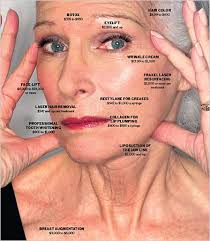



I am enjoying my adulthood journey and wish I could say the same for many of our aging population. What I am observing as a RN, daughter and friend I must say it is a concern to me…why do many people of aging want to stay home in on talking about their illness (s) and making it their main topic of conversation? I can understand when a crisis happens, there is a new diagnosis that is heavy on their mind and that there stages they go through (shock, grieving, angry, bargaining, depression and acceptance) but I am not talking about this. I am talking more about the need to focus on the aging process where some look at it as a loss and a ‘giving up’ instead of looking at it for what it is… a time of a new stage in life from 40 where they challenge it or fight the struggles of health. The aging process of mind and physical body goes through changes that can offer freedom, curiousity, and enjoyment. Let me give you some examples.
A family member of mine is in the last stage (I know I am 30 years of caring geriatrics down to 18 year olds and I have an idea how many live, some healthy with going about each day with a form of a work out or others closed in a box in their own world and do nothing but sit home. There are conditions that slow us down but don’t cripple us and having a condition that isn’t curable many can be kept under control. Though many like my family member give in or give up to the conditions she has besides set in her ways, set to no change, not paying attention to what they ate or stop exercise and the amount they eat. By doing this behavior what develops is weight gain and the signs started showing up of further health conditions like obesity, adult diabetes II (occurs 45 and up roughly), cardiac disease that probably would have never developed if the individual balanced rest, a form of light exercise and good diet eating. On top of that, from the immobility of sitting in the house or wherever you may sit all day gives you also sedentary lifestyle=less tone to the muscles with less muscle and more fat and stiffening of the muscle and joints that increases the risk of pulling a muscle or back which did to my family member, at first. Now over 6 years uses a cane and can barely walk with sciatica damage and the MRI and CatScan recently done only supposedly shows arthritis.
Prevent this people and you can! How? Only just through a routine of balancing rest, exercise program (intense or slight work out = only 15 minutes a day), and good healthy dieting and high probability you will live longer with a better healthy tone body. The KEY to obtaining this is start YOUNG and you will get into this as a routine and it will feel like it’s a regular part of your life with you wanting to do it but if your elderly you can still do it. It will be harder getting older for some but go about it with your primrary MD’s approval with reviewing what is ok for a daily 15 minute exercise with proper dieting balancing this with rest. When he have a chance to correct obesity and prevent disease we should grab the opportunity before it is too late and unbearable to exercise, get out of the house, and now you sit in the house with few nearby friends or family to come by and visit. Like many other families in the world going through this that ill one limits the places they can go, limits their independence (they have to be driven to long distances 30 minutes away or further, have to do there shopping etc…). Where when they had there independence with having conversations with them other than there condition made you more out to look forward to visiting them or even staying on the phone longer. Another example could be having a long term friend or sister you hung with for decades parting and gossiping and eating out and shopping together now moves into adulthood married with children. Than this sister depends on you for babysitting frequently, driving or picking the kids up frequently from school events, gossips about how bad the marriage is for 8 years now. Like anything else negativism all the time seen and heard you don’t want to be around. It is unfortunate but true. You on the other side feel obligated to do so for all the years of good life you had with that person but life now could be better in the end if that family person doesn’t put themselves in that situation but it doesn’t always work that way. So make your life better and don’t but yourself in that situation. I know someone who very much tryied to do so but it got so unbearable they hadn’t talk for 3 yrs or so and now are but there is a distance between the sisters. One way of reaching a point in life to be able to handle raising children, work and be married is through good diet (treats now and than), good exercise a must, and balance with good rest; doesn’t always work that way with work but I try to make up for it.
My family member by diet and exercise could have helped the situation but now it is very unlikely to make a 180 to turn around and lives a hard life with getting around. To have prevented this possibly one-making good healthy diet decisions and don’t eat after 5pm or 6pm. Don’t have a dinner 9pm at night; or usually big meals after 6pm and make smaller meals.
I was very patient when I learned about the family member making life changes 6 years ago which was no progress in increasing activity and eating healthy. Where my family member couldn’t even perform a lot of activities of daily living on her own and realizing that family member accepted to living that way and her being drawn in to live that way where it’s like a addition now to me (a lot of responsibility but over yrs it does play a lot of responsibility and stress to the me and my brothers). This can definitely end your life sooner so it is up to you to change your eating habits and doing some exercise routinely. As a daughter and a friend, it was my job to help that loved individual go through this transition and give the needed support to ease all the changes that the family member would have to go through.
So, here’s his story now. That member is less than 84 years old and has had this condition for several years, continues to make this health issue the topic of conversation to me, family members, and friends even when things are going really well. The fact is, this condition for getting close to 10 years, my family member, has chosen to play the ‘poor me scenario’ at times it appears to come across as. The doctor and myself as a RN 30 years has provided excellent information and several resources to help with coping. In only took me 6 years with some family siblings to help have her agree it’s time to move out of the house I grew up in since 1967. No one else lives in that house.
It is taking a toll on my psychic energy. In other words, it sucks the life right out of me and, after visiting, I am tired after 14 hours working and so ready to take a nap.
I see this with other friends going through a similar situation with some family members also. They talk about their arthritic aches and pains plus stiffness in their joints as much as they do about the changes in the weather. These are chronic conditions, meaning they will experience this from time to time, and talking about it obsessively won’t change a thing.
At what point do people decide that the aging process means they need to constantly talk about their health issues? At what point do they stop engaging in healthier topics of conversation? What are the reasons for this shift in how they converse with people and, more importantly, do they even realize how depressing this whole routine is?
Again being a RN around geriatrics I understand. One reason may actually be major depression (also known as clinical depression) , which is a medical illness. It is a chemical imbalance in the brain and can appear in people regardless of age, race or economic status. The illness can appear after a triggering event or for no apparent reason at all or simple normal with being alone by yourself (possible spouse deceased, friends moving if not dying off as age progresses) but when will this stop? At this point I highly doubt it and for me writing with some exercise keeping you busy in work and a good diet and even a love life all help out.
TO HELP YOU DETECT THIS EARLY OR EVEN POSSIBLY STOP IT,
Look for signs of:
- Constant complaints of aches and pains (back, stomach, arms, legs, head, chest) , fatigue, slowed movements and speech, loss of appetite, inability to sleep, weight increase or decrease, blurred vision, dizziness, heart racing, anxiety.
•An overall sadness or apathy, withdrawn; unable to find pleasure in anything or unable to have the need to get out to family gatherings or go to church anymore like previously it was considered a regular routine of that person’s life. •Also irritability, mood swings or constant complaining; nothing seems to make the person happy.
•Talk of worthlessness, not being needed anymore, excessive and unwarranted guilt.
•Frequent doctor visits without relief in symptoms; all tests come out negative.
- Another reason is ‘doing as others do’. Meaning they mimic what other elders are doing. Again if that is what they see and hear from their associates, there is a strong chance they may get caught up in the same negative behavior. •Alcoholism can mask an underlying depression.
- Another reason is the lack of stimulation, which will give them other things to talk about. Many times, elders find themselves alone with infrequent visitation from family and friends. They concentrate on familiar things like illnesses, chronic aches and pains, and the medications they take which become their major thing to talk about.
I, too, have minor health issues, however I chose to acknowledge that ‘it is what it is’. I have been dealt this hand and therefore I will do what I can to not let it slow me down. I look at the other side of the coin or at that ½ glass of water where it could be a lot worse. It can be looked at I have the worst condition and play “feel sorry for me scenario” not even realizing it since it is talked about all the time or like I look at life there are so many worse of then me with disease, no home, no family, no friends and just surviving possibly getting a meal each day, if that. Than the other side of looking at it positive is it could be worse and do the best you can. As I said, I am an observer of people partly because I am an RN and it’s part of my job. I have made note that some of those individuals who are really struggling with major health issues overall hardly complain at all. They keep a positive attitude and in doing so they don’t let their condition stop them from enjoying life. They don’t start a negative domino effect that just keeps dropping on top of another till it crashes them and unfortunately when this continues to have a life spreading to others with that effect you turn them away.
Like everyone else we all have our headaches and on high probability in adulthood health issues with losses and aches & pains. You have to deal with them in a positive note. Meaning don’t blame the world or someone else for your health situation unless its real and lack of moving around (going out) even 10 minutes exercise a day or 2 to 3 times a week one hour exercise for elderly (just simply walking) with good dieting and rest will take you along way. Going the opposite way, being negative and complaining of every ache with staying in the house only, gives you a shorter life and high odds a unhappy and lonely life. Keeping a positive attitude, you may also find things that attract you which will keep you busier in life and people benefit from being around a cheerful positive person that attracts them in wanting to see you more.
I personally am not to far away from being elderly in about 20 years, I hope to stir the Pagan (polytheistic or open minded) community to take notice of how they choose to age. Are we aging with grace or are we just aging? Talk to the God and Goddess for help in modifying your way of thinking so you can handle life’s little ups and down. If you have family and / or friends who are displaying this type of behavior, show empathy and love by helping them comprehend the negative effects that persist when they chose to concentrate on their health issues in a pessimistic way. Sometimes it becomes a habit and they don’t even realize how often they even talk about it.
Behaviors can be changed, so make up your mind to age with GRACE and not just age.





